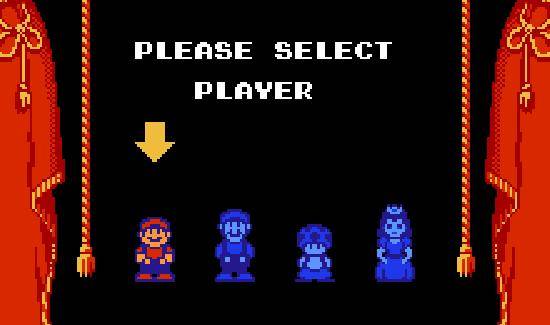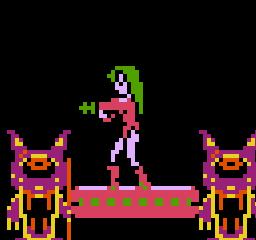Sharon R. Sherman conducted an interview with boys
and girls and wrote about her findings in Perils of the Princess: Gender and Genre in Video Games. The goal was to see if male and female children were able
to see and understand the sexist themes that could be present in the video
games they play. This is an older study that was conducted in 1997. The hypothesis she made in the beginning of the study is that
gender stereotyping will be present. Her reasoning behind this is that male
gamers are already aware of the “male hero saving the damsel in distress” plot
from films and literature. She watched and observed the children as they played
the games and asked them questions before, after, and while they played.
The main game series that she focused on is the Super
Mario series. Princess Peach was seen as the female counterpart of Mario
because she is what he lacks. In Super Mario Bros. 2, the gamer has a choice of
four characters (Mario, Luigi, Toad, and Princess Peach) to choose to play as.
Every girl said that they would choose the Princess. The boys were split between Luigi and Toad. When asked about the option of playing as Princess
Peach in Super Mario Bros. 2, the boys saw it as strange while the girls saw
her as strong and a heroine. One boy even replied, “Now she’s helping you
instead of creating the problems, sort of”. The only reason any of the boys
used her is because she has the ability to float in the air.
Moving on to other games, Sherman asked the boys
about why they didn't find Samus from Metroid “strange” and their response was
that it might be the fact that she’s an alien. One boy said “I picture it as an
it”. Girls on the other hand, thought that Samus was male because of the helmet
and armor.
Another game she asked the children about was Double
Dragon. The girls did not like this game because as one girl says, “It never interested
me. It was two guys and they were just killing things”. Boys did like the game,
but reinforced the theme of damsel in distress that was present, just like in
the Super Mario games.
Sherman says that after looking over the research,
she believes that children are conscious and aware of the sexist themes and
messages. There was actually one boy who admitted that he saw the games as
sexist. The reason the boy gives is that life used to be the same way the games
portray. He goes on to say that men could do everything and women could only do
certain things, which he calls traditional sexism. Girls were also well aware
of sexism. At the end of the interview, one girl added that Game Boy could be
seen as sexist because it’s called Game “Boy” even though girls enjoy it just
as much, and that the commercials for the product, only show boys. I wonder if
these games create sexist thoughts in the children’s head, or if they just see
it as harmless, like in a movie or a book. I honestly don’t believe that any of
these games made any of the children sexist, so the question that remains is if
the sexism has any sort of impact.



No comments:
Post a Comment